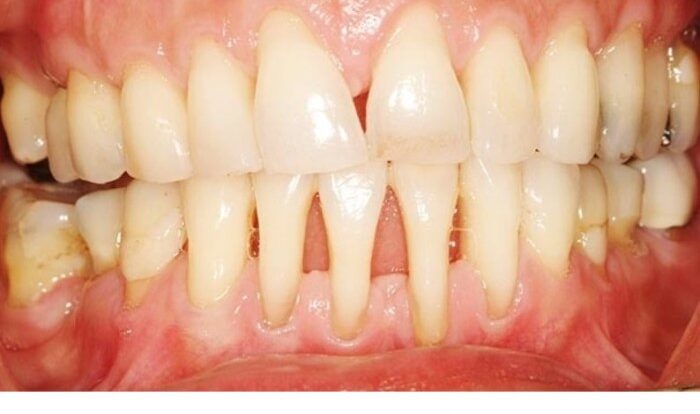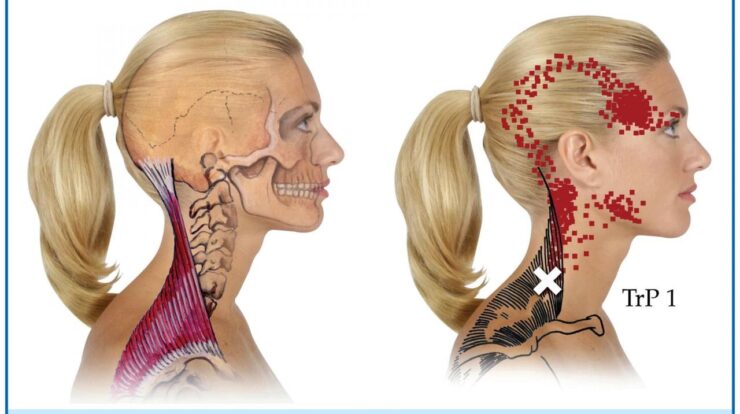
How to cure gum disease without a dentist – Gum disease is a common problem that can lead to serious health issues if left untreated. But what if you don’t have access to a dentist? Don’t worry, there are plenty of ways to cure gum disease at home without professional help.
In this guide, we’ll cover everything you need to know about curing gum disease at home, from natural remedies to oral hygiene techniques to dietary changes.
Home Remedies

Gum disease, also known as periodontal disease, is a common condition that affects the gums and the bones that support the teeth. It is caused by bacteria that form plaque on the teeth. Plaque is a sticky film that contains bacteria, food particles, and saliva.
If plaque is not removed regularly, it can harden into tartar, which can irritate the gums and cause them to become inflamed.
There are a number of home remedies that can help to treat gum disease. These remedies can help to reduce inflammation, kill bacteria, and promote healing. However, it is important to note that home remedies are not a substitute for professional dental care.
If you have gum disease, it is important to see a dentist for diagnosis and treatment.
Salt Water Rinse
Salt water is a natural antiseptic that can help to kill bacteria and reduce inflammation. To make a salt water rinse, dissolve 1/2 teaspoon of salt in 8 ounces of warm water. Rinse your mouth with the salt water for 30 seconds, then spit it out.
Repeat 2-3 times per day.
If you’re looking for ways to cure gum disease without visiting a dentist, you’re not alone. Many people suffer from gum disease, and it can be a painful and frustrating condition. Luckily, there are a few things you can do to cure gum disease without a dentist.
Click here to learn more about how to cure gum disease without a dentist.
If you’re looking for a way to cure gum disease without having to go to the dentist, you’re in luck. There are a number of things you can do at home to help improve your gum health, including brushing and flossing regularly, using an antiseptic mouthwash, and avoiding sugary foods and drinks.
For more information on how to cure gum disease without a dentist, check out this helpful article: how to cure gum disease without a dentist .
Hydrogen Peroxide Rinse
Hydrogen peroxide is a powerful antiseptic that can help to kill bacteria and promote healing. To make a hydrogen peroxide rinse, mix 1 part hydrogen peroxide with 2 parts water. Rinse your mouth with the hydrogen peroxide rinse for 30 seconds, then spit it out.
Repeat 2-3 times per day.
Tea Tree Oil Rinse
Tea tree oil is an essential oil that has antibacterial and anti-inflammatory properties. To make a tea tree oil rinse, add 2-3 drops of tea tree oil to 8 ounces of warm water. Rinse your mouth with the tea tree oil rinse for 30 seconds, then spit it out.
Repeat 2-3 times per day.
Aloe Vera Rinse
Aloe vera is a plant that has anti-inflammatory and healing properties. To make an aloe vera rinse, mix 1/4 cup of aloe vera juice with 8 ounces of warm water. Rinse your mouth with the aloe vera rinse for 30 seconds, then spit it out.
Repeat 2-3 times per day.
Coconut Oil Pulling
Coconut oil pulling is an ancient Ayurvedic practice that is said to help improve oral health. To do coconut oil pulling, swish 1 tablespoon of coconut oil in your mouth for 10-15 minutes. Then, spit out the coconut oil and rinse your mouth with warm water.
Repeat 2-3 times per day.
Oral Hygiene Techniques: How To Cure Gum Disease Without A Dentist

Maintaining good oral hygiene is essential for preventing and curing gum disease. Proper brushing, flossing, and regular dental checkups are crucial for maintaining a healthy mouth and preventing gum disease.
Brushing Techniques
- Use a soft-bristled toothbrush and fluoride toothpaste.
- Brush your teeth for at least two minutes, twice a day.
- Use a gentle circular motion, covering all surfaces of your teeth.
- Tilt the brush at a 45-degree angle towards the gum line to remove plaque and bacteria.
Flossing Techniques
- Use dental floss or interdental brushes to remove plaque and bacteria from between your teeth.
- Gently slide the floss between your teeth, using a sawing motion.
- Curve the floss around the base of each tooth to remove plaque and bacteria.
- Floss once a day, preferably before bedtime.
Dental Checkups
- Visit your dentist regularly for professional cleanings and checkups.
- Dental checkups help identify and treat gum disease early on.
- Professional cleanings remove plaque and tartar that cannot be removed with brushing and flossing alone.
Mouthwash and Other Oral Hygiene Products
- Use mouthwash as an adjunct to brushing and flossing.
- Choose a mouthwash that contains fluoride to strengthen teeth and prevent cavities.
- Other oral hygiene products, such as tongue scrapers and water flossers, can also help improve oral hygiene.
Dietary Changes
Your diet plays a significant role in your gum health. Certain foods can promote gum health, while others can contribute to gum disease. By making smart dietary choices, you can help prevent and treat gum disease.
If you’re looking for ways to treat gum disease without seeing a dentist, there are several natural remedies you can try. For instance, gargling with salt water can help reduce inflammation and kill bacteria. Another option is to apply a mixture of baking soda and water to your gums, which can help neutralize acids and promote healing.
For more tips on how to cure gum disease without a dentist, check out this helpful resource: how to cure gum disease without a dentist .
Foods that promote gum health include:
- Fruits and vegetables: Fruits and vegetables are rich in vitamins, minerals, and antioxidants, which are all essential for healthy gums.
- Whole grains: Whole grains are a good source of fiber, which helps to keep your gums clean and free of bacteria.
- Dairy products: Dairy products are a good source of calcium, which is essential for strong bones and teeth.
- Green tea: Green tea contains antioxidants that have been shown to inhibit the growth of bacteria that cause gum disease.
Foods that can contribute to gum disease include:
- Sugary foods: Sugary foods feed the bacteria that cause gum disease.
- Sticky foods: Sticky foods can get stuck to your teeth and gums, providing a breeding ground for bacteria.
- Acidic foods: Acidic foods can erode the enamel on your teeth, making them more susceptible to decay and gum disease.
Here is a sample meal plan for improving gum health:
- Breakfast: Oatmeal with berries and nuts
- Lunch: Salad with grilled chicken, quinoa, and vegetables
- Dinner: Salmon with roasted vegetables
- Snacks: Fruits, vegetables, or yogurt
Alternative Treatments

In addition to home remedies, oral hygiene techniques, and dietary changes, there are also alternative treatments that may help alleviate gum disease symptoms. These treatments include herbal supplements and other natural remedies.
Herbal Supplements
Certain herbal supplements have been traditionally used to treat gum disease. These supplements may contain ingredients that possess antibacterial, anti-inflammatory, or antioxidant properties.
- Echinacea:This herb has been shown to boost the immune system and may help fight off infections that contribute to gum disease.
- Green tea extract:Contains antioxidants that may help reduce inflammation and protect against gum damage.
- Myrrh:Has antibacterial and anti-inflammatory properties that may help reduce gum swelling and bleeding.
- Tea tree oil:Possesses antibacterial and antifungal properties that may help fight off gum infections.
It’s important to note that while these supplements may have potential benefits, they are not a substitute for professional dental care. It’s always advisable to consult with a healthcare professional before using any herbal supplements.
Other Alternative Treatments
Other alternative treatments for gum disease include:
- Oil pulling:Involves swishing a tablespoon of oil (such as coconut or sesame oil) in the mouth for 15-20 minutes to remove bacteria.
- Saltwater rinses:Gargling with warm saltwater can help reduce inflammation and kill bacteria.
- Baking soda rinses:Baking soda has antibacterial properties that may help neutralize acids and reduce gum inflammation.
Potential Benefits and Risks of Alternative Treatments
Alternative treatments for gum disease may offer certain benefits, such as reducing inflammation, fighting infections, and improving overall oral health. However, it’s important to be aware of potential risks as well:
- Interactions with medications:Some herbal supplements may interact with certain medications, so it’s crucial to inform your healthcare provider about any supplements you’re taking.
- Allergic reactions:Some people may be allergic to certain herbal ingredients, which can cause skin rashes, swelling, or other adverse reactions.
- Unproven efficacy:While some alternative treatments have been used traditionally, their effectiveness may not be scientifically proven.
It’s essential to approach alternative treatments with caution and always consult with a qualified healthcare professional before incorporating them into your routine.
If you’re looking for a natural way to cure gum disease, there are a few things you can do. You can try using a saltwater rinse, which can help to reduce inflammation and kill bacteria. You can also try using essential oils, such as tea tree oil or clove oil, which have antibacterial and anti-inflammatory properties.
For more information on how to cure gum disease without a dentist, click here .
Table Comparing Alternative Treatments
| Treatment | Potential Benefits | Potential Risks |
|---|---|---|
| Echinacea | Boosts immune system, fights infections | May interact with blood thinners |
| Green tea extract | Antioxidant, reduces inflammation | May interact with caffeine-sensitive individuals |
| Myrrh | Antibacterial, anti-inflammatory | May cause skin irritation |
| Tea tree oil | Antibacterial, antifungal | May cause skin irritation, not for internal use |
| Oil pulling | Removes bacteria, reduces inflammation | May cause nausea or vomiting if swallowed |
| Saltwater rinses | Anti-inflammatory, kills bacteria | May cause dehydration if used excessively |
| Baking soda rinses | Neutralizes acids, reduces inflammation | May be abrasive, not for daily use |
Prevention Strategies
Gum disease is a prevalent oral health concern, but it can be prevented with proper care. Preventing gum disease not only maintains oral health but also safeguards against potential systemic health issues linked to gum disease.
Here are some essential tips for preventing gum disease:
Daily Oral Hygiene Routine
- Brush your teeth twice daily with a soft-bristled toothbrush and fluoride toothpaste.
- Floss at least once a day to remove plaque and food particles from between teeth.
- Use an antiseptic mouthwash to kill bacteria and freshen breath.
Dietary Modifications, How to cure gum disease without a dentist
- Limit sugary foods and drinks, as they feed bacteria that cause gum disease.
- Consume plenty of fruits, vegetables, and whole grains to provide essential vitamins and minerals for oral health.
Regular Dental Checkups
- Visit your dentist for regular checkups and cleanings to detect and treat gum disease early on.
- Professional cleanings remove plaque and tartar that can’t be removed with regular brushing and flossing.
Other Preventive Measures
- Quit smoking, as it weakens the immune system and increases the risk of gum disease.
- Manage chronic health conditions such as diabetes, which can contribute to gum disease.
Final Review

Curing gum disease at home is possible with the right knowledge and techniques. By following the tips in this guide, you can improve your gum health and prevent future problems.
Questions Often Asked
How long does it take to cure gum disease at home?
The time it takes to cure gum disease at home will vary depending on the severity of the condition. However, most people will start to see results within a few weeks.
What are the most effective home remedies for gum disease?
Some of the most effective home remedies for gum disease include oil pulling, salt water rinses, and tea tree oil.
What foods should I avoid if I have gum disease?
If you have gum disease, you should avoid foods that are high in sugar, processed carbohydrates, and unhealthy fats.





